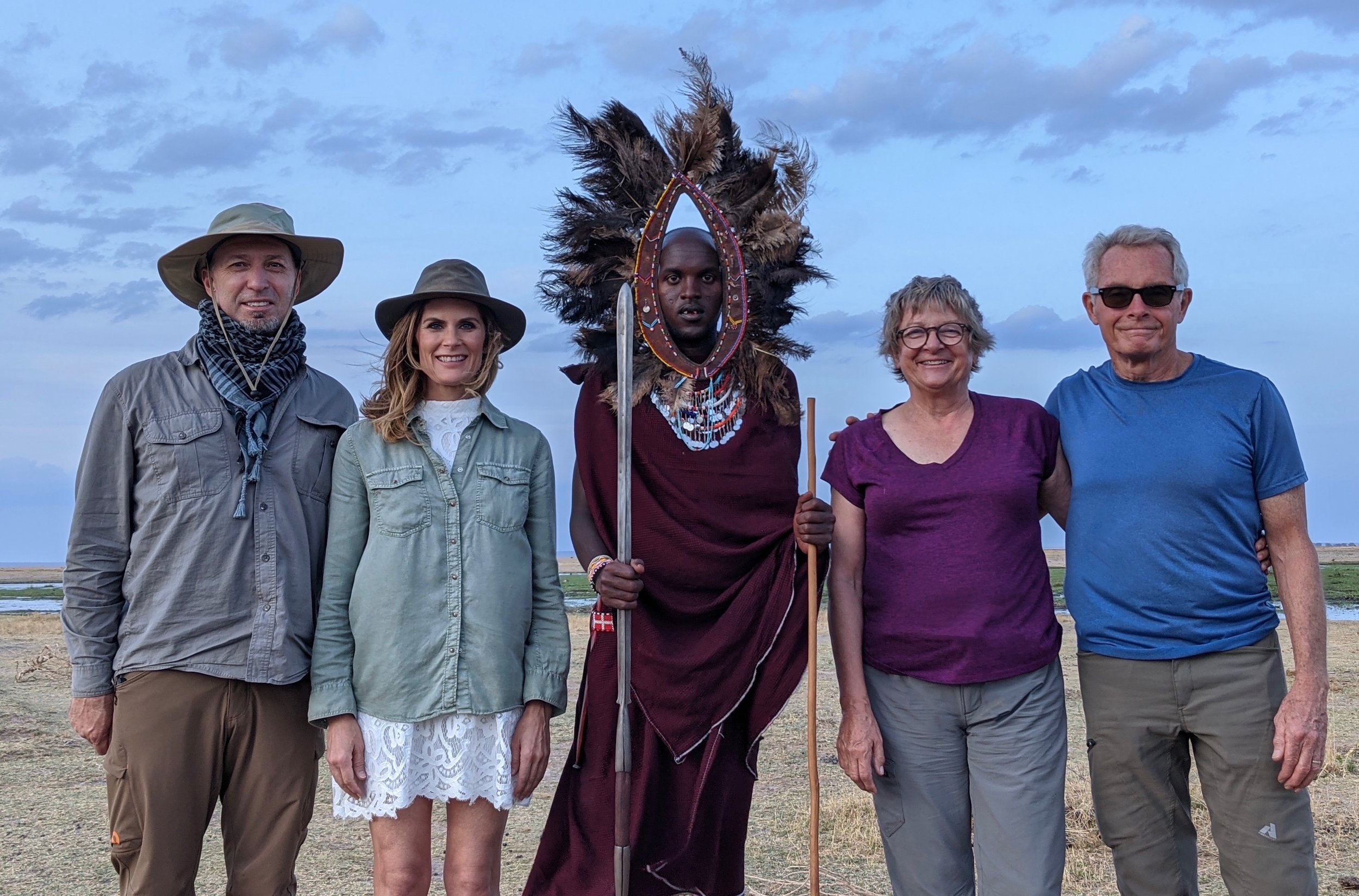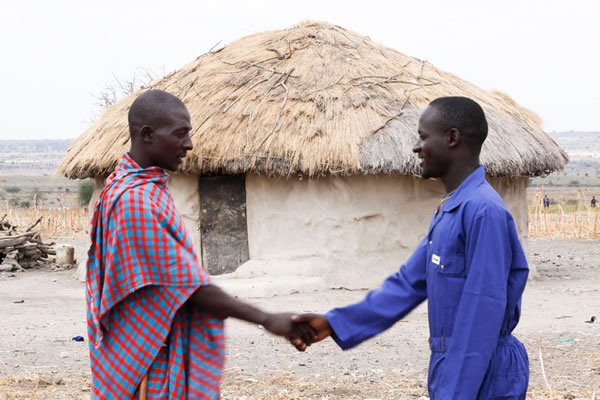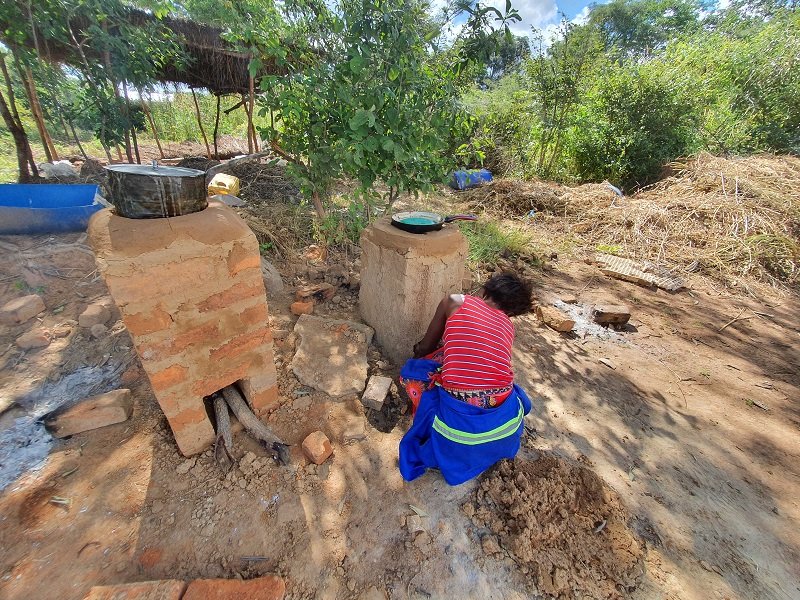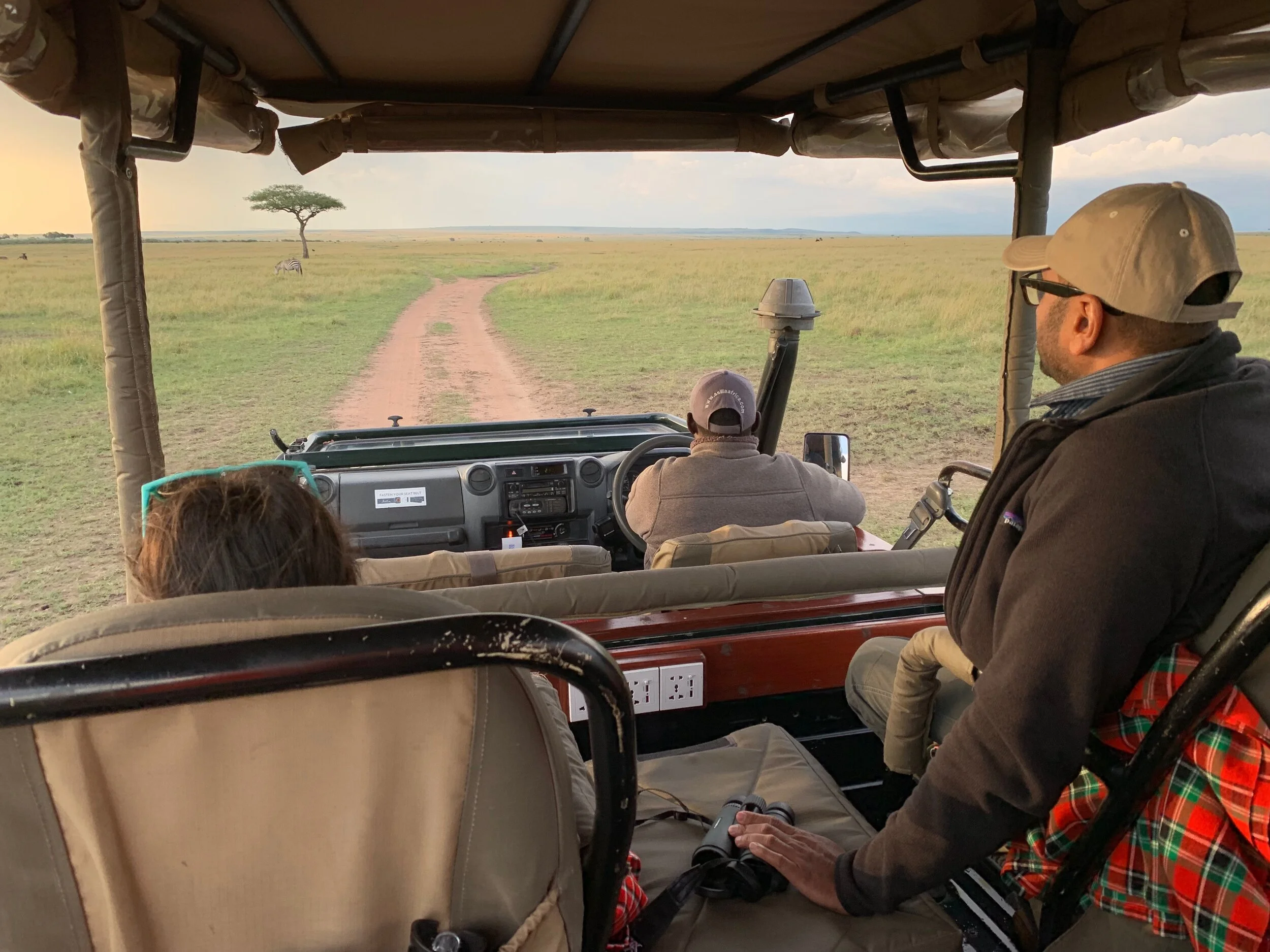What to pack on Safari and how to make it all work with the 35 lbs weight limit is one of our most asked questions when getting ready. A little tricky but doable with a little planning and preparation.
This piece is written by our guest Julie Stevens, A Model Traveler, who went on Safari with us in Oct 2021 with her husband, uncle, aunt, and my friend and amazing photographer Randy Hanna. Enjoy!
- Mefi
"Out of Africa" Safari Style for the Modern-Day Female:
What to pack for your upcoming safari.
"If there were one more thing I could do, it would be to go on safari once again." - Karen Blixen
For those of us who have seen the movie, Out of Africa, there's a certain safari elegance and attitude that it exudes, and I've always wanted to emulate that if given the chance. When I started planning and packing for my upcoming safari adventure to Kenya, I couldn't get the images from this 1985 Oscar-winning film out of my mind. Now, I'm not saying that high-collared white blouses, neck ties and midi skirts are somehow practical in the bush, but I am suggesting that you can happily merge style and comfort, without the need to sacrifice your independent flair. There was only one Karen Blixen, so let's do our best to find our own unique fashion sense while on safari.
Our safari tribe consisted of myself, my husband Clyde, and our Uncle Ken & Aunt Nan. We were also joined by professional photographer, safari guide & friend, Randy Hanna. Traveling with these familiar faces made the journey that much more special and intimate, and it also allowed us to converse on a regular basis before our departure about what to pack, what to leave at home, and stir up the excitement and anticipation of going on safari together.
What Clothing To Pack
One important thing to do before you pack anything, is to lay all of your clothing and accessory items out on your bed and see what pieces you can mix-and-match so that you can create several outfits using a few of the same clothing items. Less is more, and I can assure you that you will never be upset about packing too little, only too much. There’s no need to purchase a new wardrobe for safari. I only bought one or two new items, and I knew that I would wear these again once I returned home.
Good communication with your safari company or travel agent should give you a heads-up regarding weather conditions and insect frequency for the time of year you'll be traveling to Africa and what nations you will be visiting. This will help in deciding which fabrics to choose and how much layering will be necessary for each stopover. Our safari company, Journey To Africa, made packing a breeze with their own detailed packing list.
Earth tones like tans, muted browns, light greens and blues will serve you well, not only for reflecting most of the visible wavelengths on a hot day, but it can get dusty during those adventurous jeep rides, so it's nice to keep the wash load down. I've also found it easier to find softer, breezier fabrics in these lighter colors.
Warmer clothing options like fleeces, light-weight jackets and pullovers will be essential for those early mornings, evenings and higher altitudes. Do leave your bulky sweaters and jeans at home. They take up too much space in your pack, and you won’t need those heavier fabrics on safari. Be sure to pack a rain jacket just in case, as you never know what the elements might surprise you with each day. Do your best to be prepared, comfortable and protected at all times.
The proper shoes can make or break a good vacation, so a little effort goes a long way in selecting footwear. I prefer a high-top boot, but this is just personal preference. Depending upon your itinerary, unless you are scheduled to take on Mt. Kilimanjaro, Ngorongoro Crater, or other challenging treks in Africa, most of your time will be spent in a 4x4 or relaxing around camp. So, most trail or day-hike shoes will suffice.
Socks are also a small, yet very important item to choose wisely. I prefer a wool or cotton blend, and a sock that covers your ankles. If bugs are present, this seems to be the one spot where I get nibbled on the most. A nice compression sock will keep circulation flowing if you're sitting for long hours. They are especially important for those long international flights. Wool socks that are lined with a cotton blend make for a lovely alternative if you have a sensitively to wool.
Hats can be found in an array of styles, colors and fabrics, and I switched between a breathable UV-protected hat with an adjustable chin strap, which is great for those windy days, and a fedora-style packer hat. Beanies make for a great option as well, they're easy to pack and will keep you warm during those chilly morning rides.
Scarves or bandanas also come in handy as hair ties or face-coverings when needed, and sunglasses should be worn not only for daily sun protection, but as a shield from the wind.
Ladies, one last suggestion, a quality sports bra. Yes, a sports bra. Those safari jeeps don't do us any favors with all of that bouncing and bobbing about, so good support is a must!
Extras
A few final suggestions when thinking about your safari wardrobe. Bring a bathing suit, as some of your camps or hotels may have swimming pools. I also like having large airtight baggies on hand in case some of my clothing is still damp and we are en route to another camp.
Having a pair of sandals or flip-flops will give your tootsies a nice breather after a long day in socks and boots.
Clothing items and accessories with built-in insect repellent are quite popular, so it's worth checking a few of these items out, especially if bugs seem to take an extra special liking to you.
Leave your fancy bling at home. Packing a sport's watch, simple earrings and possibly a necklace are all the jewels you will need on safari. Use this as an excuse to buy some of the locally made jewelry and wear that while you're in Africa.
Our camps provided shampoo, conditioner, body wash and laundry soap, so there was no need to add this extra weight to our pack. The camps also offer daily laundry service, so do keep this in mind when packing. We brought laundry wash leaves that dissolve in water for our undergarments, as these items are not part of the camp laundry service.
Most camps do not provide hairdryers, but I found that my hair dried very quickly on its own in the African heat. If you want to add a little style to your hair, I suggest a travel-size, cordless curling iron. They’re rechargeable, compact, and add some polish to your do.
Sunscreen, bug repellent, wet wipes, lip balm, moisturizing eye drops, and a GoGirl or SHEWEE. You may need to tinkle outdoors, and while these last items are certainly not necessary, they could come in handy. I do recommend taking a few practice runs at home before using these in Africa. It’s always a good idea to make sure your aim is on point.
How To Pack
Rolling your clothing instead of folding saves you space in your pack, plus most fabrics will obtain less creases during transit. If you do acquire a few wrinkles, most man-made fabrics will naturally release these once they are hung up.
Bring camera gear, including extra batteries, memory cards, a hard drive, and all other valuable equipment in your carry-on luggage. Most camera batteries are lithium these days, and international laws will prevent these from being sent through to the hold of an airplane. It’s also a good idea to have a change of clothing on hand. If any luggage goes missing, you'll have these items with you.
I suggest soft-sided backpacks over hard luggage. Bush planes will require this for easier transit and packs are convenient for throwing on your back when walking over rough terrain or camp trails. My husband and I travel with mountaineering backpacks as our check-in luggage. They’re portable, durable, and allow us to display our travel patches from our globetrotting adventures.
Pack light. Weight restrictions on internal flights are quite strict, 35 pounds to be exact, so bring only that which is absolutely necessary. We bought a hanging scale to make sure that our carry-on, as well as our check-in luggage, was 35 pounds in total.
Packing creams and liquids such as sunscreen, skincare, bug spray and hand sanitizer in sealed bags will save you from the unfortunate product explosion. I'm speaking from experience on this one.
Have The Time Of Your Life
We were so blessed to travel with family and friends on this safari. We shared many inside jokes, we gave names to the animals and became narrators as they went about their daily routines. It became a game, one that we will chuckle over for years to come. One night while traveling back to camp from our evening safari, we played Toto's, "Africa", at full volume, and we all sang along to this classic tune. This song now holds a special memory and a meaning that will always take us back to Africa and our life-changing safari.
Heading out on safari is guaranteed to be one of the most memorable adventures of your lifetime. You will see and experience the most amazing wildlife in its natural habitat. You may feel a shift in your perspective and a newfound sense of freedom. Your mind will open to the landscapes and horizons and your heart will expand for the people and their continent.
Like they say, "once you get the dirt of Africa on your boots, you will always find a way to return." Just make sure those boots are comfortable, and stylish.
You can visit Julie’s YouTube channel for a short Safari video. Julie has captured some stunning wildlife photographs from Masai Mara and Amboseli National Park, Kenya.
